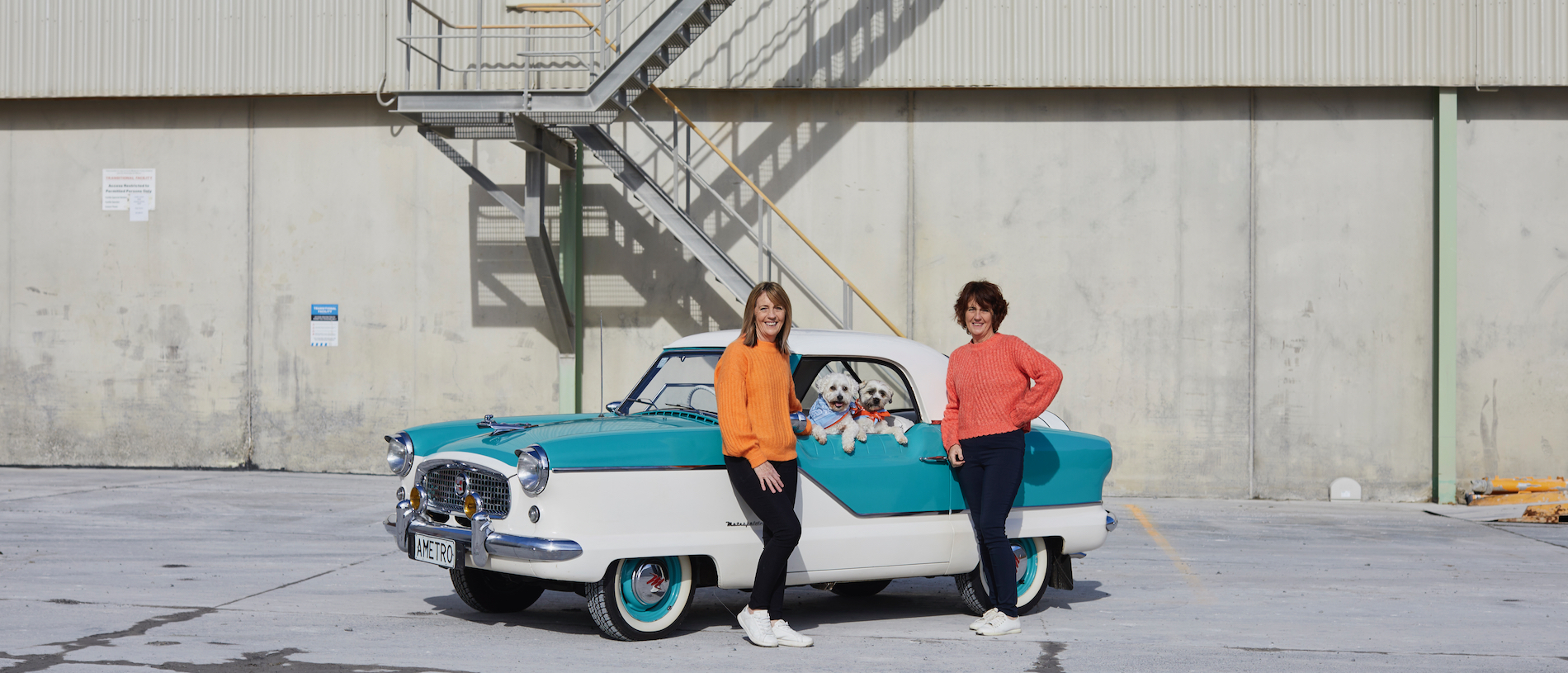
Wheel Love: Sally Bridgman and her 1956 Nash Metropolitan
Sally Bridgman recently bought her 1956 Nash Metropolitan for jaunts with identical twin sister Vicki Turfrey and their dogs, Bob.

Abuse is a daily occurrence for those working to improve our roads, but motorists aren’t stopping at vitriol and gracelessness. Guns being used to threaten workers are among an escalation in dangerous behaviour that is now considered part of the job.
This summer Waka Kotahi has scheduled its largest ever works programme – over 2,500 lane kilometres of repairs and renewals. The works are sure to bring traffic delays, and the agency and contractors are calling for calm.
Mark McIntosh loves his job – he’s a senior Site Traffic Management Supervisor for Higgins Contractors whose teams operate the stop/go signs at various worksites. He says most people pass through respectfully and without incident, but over 12 years on the job he’s noticed a significant increase in driver aggression.
Traffic management staff take the good with the bad; motorists will often offer them lollies or cold drinks, but abuse and obnoxious behaviour is a daily occurence, he says. He’s had everything from people deliberately disobeying stop signals to gang members threatening his teams.

Sometimes it’s something more nefarious than treats being delivered by passing vehicles.
“One of our staff working as a tail pilot in the Coromandel had a rock the size of a rugby ball thrown by a passing motorist at the vehicle, breaking the rear window behind them (and) narrowly missing the worker’s head.”
Waka Kotahi has seen a 20% year-on-year increase in serious abusive and threatening incidents.
Peter Brown, one of the agency’s regional managers of maintenance and operations, says this worryingly includes incidents involving guns.
“We had a shooting incident in the North Island last week in which one of our contractor’s crews was targeted. The perpetrator was apprehended [by Police] soon after.”
In fact, there were three incidents involving guns in October, two in which air guns were discharged. Waka Kotahi’s health and safety records show between May 2022 and October 2023 there were nine incidents logged where workers were directly threatened with weapons.
Effective fixing and upgrading of roads requires warm, dry weather, which makes summer the ideal time for contractors to get to work. Unfortunately, traffic management set up to keep workers safe does few favours for those also trying to make the most of the good weather on their holiday travels.
Anecdotally, Peter says incidents seem to increase following stressful times in the community – during the post-lockdown period, and particularly in areas that have been hit by extreme weather events.

Mark puts incidence of aggression down to a lack of understanding and awareness. He believes better education through driver training and the Road Code could improve safety around worksites.
“I would like everyone to remember that we are people, too. We didn’t create the need for the road works; we are there to provide a safe work environment, to get the job done, and most importantly get everyone home safe to their families.”
This summer will see 2,500 lane kilometres of highways receiving repairs and renewals, work that is critical to keeping the road network safe and efficient but which will also bring delays to motorists in the short term.
It will be the largest summer works programme ever undertaken by Waka Kotahi, after the highways took a pasting last year.
Heavy rain, washouts and slips brought new damage, while works due to be completed last summer were put on hold.
“We had a significant impact on our maintenance programme last year with the cyclones that hit the country – particularly Gabrielle,” Peter says.
While 98% of works were finished in the South Island last summer, the North Island had a 70% completion rate, which has left Waka Kotahi and its contractors playing catch-up.

Peter says delays are a small price to pay for work that will have huge benefits for the community. He asks travellers to take a deep breath and bear with them.
In response to the growing number of incidents, the agency and contractors have had to develop extra safety measures such as safe zones and exit routes for workers to retreat to, Peter says.
“Worker safety is of paramount importance to Waka Kotahi. If we have to pull crews out (because of abuse or threats) all that does is delay the work.”
AA road safety spokesperson Dylan Thomsen says its completely unacceptable that workers have become the targets of abuse and violence.
“No one deserves to be on the end of that sort of behaviour. The people repairing and improving our roads are doing important work.
“The poor quality of our roads is the number one transport concern for many AA Members. We need good people working to get the roads back up to scratch and they deserve to be treated with respect and decency.
“The amount of work planned for summer will likely mean some delays and slower trips, so people should give themselves extra time to get to their destinations for stress-free travel and ensure the holidays are enjoyable.”
This story is from the Summer 2023 issue of AA Directions magazine.